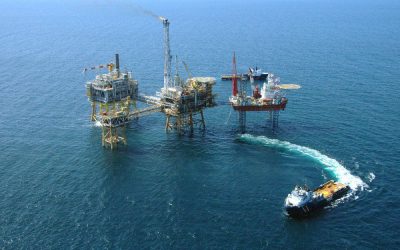Frontier Centre: What was your role in Greenpeace?
Patrick Moore: I was one of the first people to join the “Don’t Make a Wave” committee as they were beginning to plan the voyage against US hydrogen bomb testing in Alaska. I was also a member of the crew of that first voyage which eventually became known as Greenpeace. I was the ecologist on board because I happened to be taking my PhD in Ecology, I guess they thought it was a good designation for me. I knew more about boats than nearly everybody else on the trip except for the skipper and the engineer. I played a role in navigating and helping getting the boat to where we wanted it to go.
FC: How would you summarize the fundamental split between yourself and Greenpeace?
PM: I think the main split between myself and Greenpeace is I believe environmentalism should be politically neutral down the middle borrowing the best from the right and from the left in politics. Greenpeace made a sharp turn to the left in the 1980s and kind of left me behind in that sense because I don’t want to be on one side or the other in environmental politics. I think I have a more sensible approach, a more logical approach and a more science-based approach. Whereas Greenpeace’s approach these days seems to be more based on sensationalism, misinformation and fear than it is on science and ecology.
FC: Why do you think some environmentalists have created such an anti-human tone?
PM: I think the anti-human tone in environmentalism is because they actually believe human beings are some kind of plague on the earth destroying nature and the environment. To me, it’s almost a kind of collective self-loathing that they exhibit or a real belief in original sin as in that humans are evil and nature is good and that therefore anything humans do to nature is wrong.
FC: Are there any environmental organizations today that you do support? Or is there something fundamentally flawed in the concept of an environmental advocacy organization?
PM: For one thing, I strongly support the Nature Conservancy in preserving natural environments by buying land or putting covenants on it. They raise a lot of money. They’re the biggest environmental group in the United States. I think they do a very good job. There is a place for environmental advocacy but environmental advocacy has to be based on truth and cannot be based on misinformation and sensationalism like it is today. Somehow or another the environmental movement has to be made more accountable. That is the real problem is they are essentially accountable to no one and we have to figure out how to do something about that.
FC: Why are you such a passionate advocate of nuclear power?
PM: I believe nuclear energy will be one of the most important energy sources for centuries to come, long after the oil and gas and coal have run out or run down to a smaller amount nuclear energy will still be available. It is really important that we perfect this technology and make it as safe as we possibly can and constantly work on making it safer. It is the safest already of all the major technologies but it’s because I believe it is here for the long term and because it’s clean and sustainable that I support it.
FC: Is carbon dioxide a dangerous pollutant?
PM: I do not believe that carbon dioxide should be described as a pollutant because it is in fact the most important nutrient for life on earth. Sure, if you breathe in pure carbon dioxide you can’t live because we live on oxygen and breathe out carbon dioxide. But plants live on carbon dioxide and we need plants to survive ourselves. We need carbon dioxide for that reason. Therefore it should be recognized as the most important nutrient on earth and not demonized as some kind of pollution.
FC: So should it be regulated by the EPA?
PM: The question of whether EPA should regulate CO2 comes down to whether or not CO2 should be included as a pollutant under the Clean Air Act and I don’t think it should be. Therefore if CO2 is to be regulated it should not be by the EPA.
FC: On a geological timescale is the earth experiencing a high or low level of atmospheric CO2?
PM: If you look back 500 million years, which is basically the time that modern life forms have existed on earth since the Cambrian explosion occurred, CO2 has been higher nearly all of the time during that period than it is today averaging around 2000 parts per million sometimes up as high as 700ppm. Today it’s 390ppm. So it’s fair to say that it’s never been much lower in the history of the earth than it is today. It was a little bit lower at the beginning of the Industrial Age and possibly because of our activity it has increased somewhat but it’s nowhere near the level it has been through most of the history of life and it’s nowhere near the level that plants would like it to be at. In other words, the optimum level of CO2 for plant growth is actually 4 or 5 times higher than it is today.
FC: Even though we still have the usual stream of doom and gloom articles about global warming and climate change the public seems to have become increasingly skeptical. Why is that?
PM: The public is becoming skeptical of climate change number one because they don’t see it happening. It hasn’t warmed, even cooled a little bit, over the last 12 years or so. So there’s no evidence anymore of increased warming. The public is also skeptical because of the Climategate emails which showed that scientists were withholding data, manipulating data and conspiring against their fellow scientists who didn’t agree with them and trying to keep their publications out of journals. I think also because the International Panel on Climate Change has been shown recently to have made so many errors.
FC: Various government and academic agencies have whitewashed the Climategate scandal so far. Do you think anybody should be prosecuted for fraud?
PM: I don’t know if prosecution is what should happen in the Climategate scandal. All I know is that it shouldn’t be whitewashed and that it should be brought more to the light of day so that people can see that there was the illegal withholding of data under the Freedom of Information Act, there was the manipulation of data which is a travesty against scientific practice and there was the conspiracy against other scientists who disagreed against them which is just dirty pool.
FC: Why is the media still reluctant to expose the fraudulent science and politics that underlie the global warming industry or movement?
PM: Like with many sectors it is in the media’s interest to perpetuate the sensationalism and conflict around the climate change issue because it’s a big story and they don’t want it to go away.
FC: You talk about powerful convergence of interests behind the global warming industry. Could you explain?
PM: What I mean is that there’s not necessarily a conspiracy amongst the different actors in the climate change game but there is a powerful convergence of interests. Environmentalists who need campaigns to raise funds, Politicians who want to look like they’re saving the world to get votes, Businesses who want to appear green so they get grants from the government, Universities and professors who want to get grants you nearly have to use the words “climate change” in grant applications these days to get any money and many other sectors. The media, of course, who want to perpetuate conflict and sensation in order to sell newspapers and magazines. All of these are major sectors in our society and all of them have this convergence of interests to perpetuate the idea that catastrophic climate change will come and doom the world.
FC: Although climate change has not been much of a topic during the current election campaign, all of the parties have mentioned climate change strategy and that they support doing something to stop global warming. What is your advice to the many politicians out there who are frightened to say the “emperor wears no clothes” when it comes to confronting the global warming lobbies, the interests, the media axe grinders?
PM: It is unfortunately a political reality today that if you come out as a politician skeptical about climate change and if you say you don’t really think anything needs to be done about it you are going to get shouted out of the room and you’re going to lose votes. I think it’s understandable that political leaders are saying they have a plan and will do what they can. It is a situation where the emperor has no clothes and that’s all there is to it. As long as more and more citizens start to recognize that it won’t be necessary to pretend that they think something should be done even if they know it’s not a high priority.
FC: Are you an optimist or a pessimist on the future of the environment?
PM: I’ve always been an optimist and I’m still an optimist because I think human intelligence and ingenuity will find solutions to problems and that we will learn more and more to live in harmony with the other species on the earth and with the natural environment we have around us. I think that the human species has a long and amazing history in front of it.
Read in PDF format here. (2 pages)



